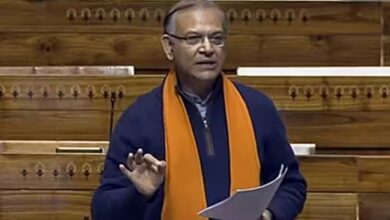Experts: Government attempt to deflect focus from the concerns of farmers
The government’s plan to guarantee the purchase of five additional crops at the MSP—corn, cotton, arhar, tur, and urad—seems to have fallen flat with agricultural experts and leaders, who have labeled the action as an attempt to deflect focus away from farmers’ primary demands and ignite a discussion about diversification.

This offer has been turned down by the Samyukt Kisan Morcha (SKM), an umbrella group of forty farmer unions that is not associated with the protestors directly. The SKM is demanding the purchase of all 23 crops, including the five mentioned above. Experts said that the commodities recommended by the government at a Sunday meeting in Chandigarh with agricultural groups were already selling for more than the minimum support price.
They referred to the government’s plan as an effort to deceive farmers and draw their focus away from the crucial demand for guaranteed MSP.
Expert in food policy and agriculture Devinder Sharma claims that this offer is only meant to deflect attention away from what farmers are really wanting. The government wants to tie MSP to diversification, but the farmers want it otherwise. Farmers are not expressing interest in the crops they have selected, even if their prices are already higher than the MSP since they are not as lucrative as wheat and paddy.
The experts recommended that the list of crops be expanded to include other crops such moong, sugarcane, and mustard, and that the rates be set in accordance with the suggestions made by the Swaminathan Commission.
“There is an MSP for sunflower seeds, but every year the farmers have to demonstrate because there aren’t enough buyers. Following a week-long demonstration in Kurukshetra last year, farmers sold sunflower seeds for between Rs 500 and Rs 700 per quintal less than the MSP, according to Gurnam Singh Charuni, president of the Haryana BKU (Charuni).
“The government’s proposal to offer MSP only for certain crops for five years through contact farming is misleading and cheating the farming communities,” said Dr. Virender Lathar, a former chief scientist at ICAR-IARI, Delhi. Additionally, this might jeopardize India’s food security.







